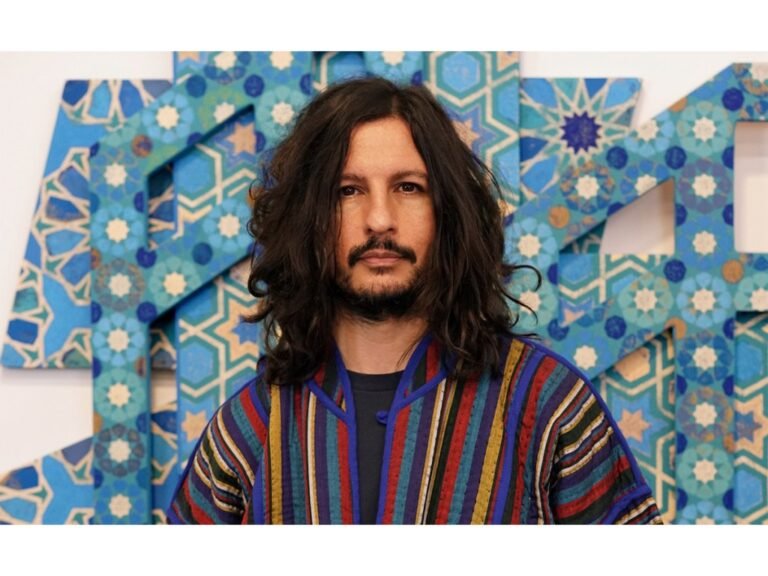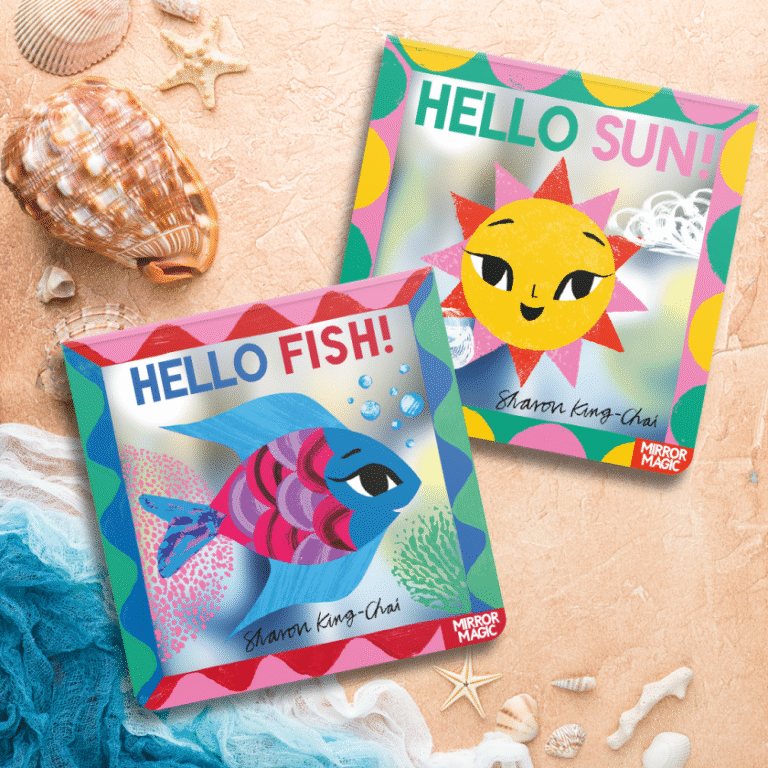
Flower Face.
It seems nothing will hold back Yvie Johnson, the illustrator from North Wales who’s bringing a plethora of stories to life with paints, inks, and her digital stylus, too.
Every artist we cover here on Creative Boom is bursting with passion, but Yvie Johnson is one who turns the dial to 11 when it comes to ideas, enthusiasm and positive thinking. The funny thing is, she didn’t even set out to become an illustrator.
In 2010, while working as a police officer, she received her calling. A voice said to her: “You need to start drawing again”. Within a year, she was planning her withdrawal from the blue line and setting up as a freelance illustrator, creating signs, lettering, and illustrations on wooden boards with ink and paint.
Yvie’s work typically focuses on pets, portraits, places and plants. They’re the topics where her heart is and where she gets “…to highlight the turning wheel of life and the joys that are right under our noses. The history of life fascinates me, the stories we hold and that are yet to be discovered; I try to tell some of these with my images and words.”



Herbie Hare, Dilbert Dog and Tabitha Tortoise.
Her style is typically colourful, but always with a sensitivity towards the more difficult emotions we all experience. “Polychromatic and brightly melancholic,” as she describes it, “interlaced with layers of existential meaning, most often bringing light to the subtle shadows of the psyche. Bursting at the seams with detail, the intricacies make it all worthwhile for my racing mind and curious soul.”
That curiosity roams far and wide but also takes a deep dive into stories closer to home. Although originally from Manchester, Yvie has lived much of her life in Wales, and two of her children speak the language fluently. Over the years, she has explored her Welsh genealogy and community. She often illustrates to support the local language and culture.
“I love my mythology and my folklore and ghost stories and history and understanding who I am on an ancient level,” says Yvie. “Recreating images for the Mabinogion, for example, helps me to appreciate the intrinsic poetry that sings across the landscape because the stories are ageless and archetypically inspiring, weaving imagery that I can reimagine and retell to keep them alive.”

Blodeuwedd – the flower deity from the Welsh mythology.

Dydd Gwŷl Dewi Hapus, Happy St David’s Day.
In 2018, Yvie was diagnosed with myalgic encephalomyelitis (ME), a debilitating condition that can keep her bed-bound 23 hours a day. At first, there was rage and grief and the possibility that ME would prevent her from continuing as an illustrator. However, with an iPad and a MacBook, she uses Adobe Illustrator, Photoshop, and Express, working a few hours a day when she can and connecting with her creativity in new ways.
“Experiencing the world from this side of the health coin has ultimately expanded my heartfelt compassion for all sentient beings and my understanding of how design can do better, so I take that as one of many challenges in which I have skills to help make change happen, through illustrated stories, of course,” Yvie explains.
It enables her to appreciate certain projects more than other illustrators might. In 2022, she illustrated a piece called Rewriting the Narrative for Women Enabled International (WEI), bringing women, girls, and non-binary individuals with disabilities to the forefront at events such as the COP27 climate conference. The artwork effectively highlights the differing levels of support for activism and disability activism.



How disabled people are excluded from meaningful climate activism.
“This article resonated with every fibre of my being, put words to many experiences I had felt first-hand or had an appreciation of, which meant illustrating came from a profound sense of embodied awareness,” says Yvie. “I was overjoyed to create a series of images that responded to the text, drawing out the valid experiences of different aspects of disabled life, reflected in full colour and stark contrast to the activism, for any important global issue, that we often see portrayed across the media.”
At time of writing, Yvie had several projects on the bubble – portraits of disabled gods and goddesses, a women-in-art project based on one of her ancestors, and a graphic memoir involving maps and drawings that support mental health charities.

Mushy Head.

Polychromatic carrots.

Mystical green dragon.
With her experience of ME over the last seven years, she also has some valuable advice for the design industry. One point is that too many industry events are held at venues that aren’t fully accessible. For Yvie, it’s not just a question about the venue; it’s about the hosts and who they are happy to exclude.
Her second point is about design itself. “The creative industry holds a lot of the answers for improving many accessories,” she says. “If handbags and high heels and ties can be given endless style choice, our wheelchairs, especially the ones that are too heavy, too same colour, too expensive, too jiggly, too not appropriate for anything that’s not a smooth flat path, and our canes and our bed-desks, can also be given the same love.”


